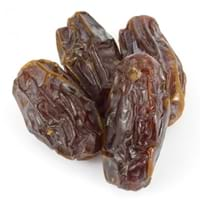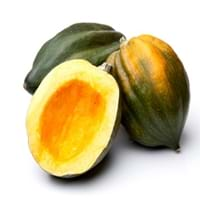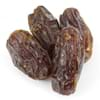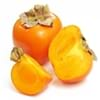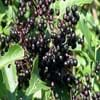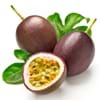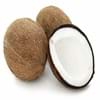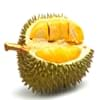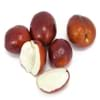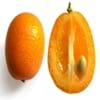Health Benefits
Cancer prevention, Cures gastro-intestinal troubles, Diarrhea treatment, Heart care, Heat stroke treatment, Improves muscular strength, Prevents constipation, Prevents nerve damage, Strengthening of bones
Anti-inflammatory properties, Arthritis treatment, Regulates Blood Sugar
General Benefits
Boosts immune system, Maintains healthy cholesterol level, Strengthens bones
Boosts immune system, Controls blood sugar levels, Digestive aid
Skin Benefits
Anti-aging benefits, Brightens and lightens complexion, Reduces wrinkles, Treatment of skin diseases
Nourishes skin, Protects skin from oxidative stress
Hair Benefits
Prevents hair loss, Promotes longer and healthier hair, Protects hair, Regulates hair growth
Prevents hair loss, Promotes longer and healthier hair, Regulates hair growth
Allergy Symptoms
Redness of eyes, Runny nose, Sneezing, Watery eyes
Asthma, Red rash, Swelling of mouth, tongue or lips
Side Effects
Allergic reaction, Diarrhoea, Intestinal gas, Stomach pain, Tooth decay, Weight gain
Diarrhoea, Vomiting
Best Time to Eat
Any time except an hour after meal, Don't consume at night and before bed
Along with meal, As a snack in the late afternoon, Don't eat after meal, Eat the fresh ones, avoid mixing with any other foods, don't eat after meal.
Vitamin B5 (Pantothenic Acid)
Vitamin C (Ascorbic Acid)
Vitamin E (Tocopherole)
Not Available
Vitamin K (Phyllochinone)
Not Available
Lutein+Zeaxanthin
Not Available
Calories in Fresh Fruit with Peel
Calories in Fresh Fruit without Peel
Not Available
Not Available
Calories in Frozen Form
Not Available
Calories in Canned Form
Not Available
Season
Spring, Summer
Winter
Varieties
Barhi, Dayri, Deglet Noor, Halawy, Khadrawy, Medjool, Thoory and Zahidi
Bush Table Queen, Heirloom Table Queen, Festival Hybrid, Early Acorn Hybrid, Table Ace, Ebony and Cream of the Crop
Color
Black, Brown, Red, Yellow
Dark green, Green-yellow, Orange green
Inside Color
Brown
Yellow
Origin
Iraq
Central America, North America, Unknown
Soil Type
Clay, Loam, Sand
Well-drained
Climatic Conditions
Hot, Warm
Cold, Sunny
Facts about
- Date is known as the tree of life in Middle east.
- Date palms cover 3% of the earth's total farmlands.
- Scholars believe that date (and not apple) was the real fruit mentioned in the Bible's Garden of Eden.
- It was named as Acorn Squash for its resemblance to a large ribbed acorn.
- It is said that squash was being grown in Mexico as long as 10,000 years ago.
- It was the first food cultivated by native American Indians.
Spirits
Not Available
Yes
Cocktails
Not Available
Yes
Other Countries
Algeria, Iraq, Oman, Pakistan, South Africa, United Arab Emirates
Egypt, India, Iran, Italy, Mexico, Russia, Turkey, Ukraine, United States of America
Top Importer
India
Costa Rica
Top Exporter
United Arab Emirates
United States of America
Botanical Name
Phoenix Dactylifera
Cucurbita Pepo
Synonym
Not Available
Winter Squash
Subkingdom
Tracheobionta
Tracheobionta
Division
Magnoliophyta
Magnoliophyta
Class
Liliopsida
Magnoliopsida
Subclass
Arecidae
Dillenhidae
Order
Arecales
Cucurbitales
Family
Arecaceae
Cucurbitaceae
Species
P. dactylifera
Pepo
Generic Group
Palm
Not Available
Compare Date and Acorn squash
It is important compare Date and Acorn squash as both the fruits have a different nutritional value. Their comparison can be done on the basis of their vitamin and mineral content, calories, benefits as well as characteristics, making it easier for us to choose the best fruit for our diet. Their general health benefits are as follows:
Date Benefits: boosts immune system, maintains healthy cholesterol level and strengthens bones.
Acorn squash Benefits: boosts immune system, controls blood sugar levels and digestive aid.
Fruits are also used as a remedy for various hair problems. The hair benefits of Date are: prevents hair loss, promotes longer and healthier hair, protects hair and regulates hair growth and hair benefits of Acorn squash are: prevents hair loss, promotes longer and healthier hair and regulates hair growth. Some fruits are known to cause allergic reactions. The allergy symptoms of first fruit are: redness of eyes, runny nose, sneezing and watery eyes and the symptoms of second fruit are: asthma, red rash and swelling of mouth, tongue or lips. Get sorted Date vs Acorn squash comparison with the help of fruit comparison tool by fruitvs.com.
